Scroll for prep

Please wait…
This video is having trouble loading. You may have lost your Internet connection.
Step 1: Click to Reload this page
Step 2: Click to
Try our other video player
Step 3: Contact your teacher if trouble persists.
Or,
dismiss this message.
CONVERSEMOS:
¿Crees que la «energía» que usa la gente y la «energía» que usan los carros son la misma cosa? ¿Por qué sí o por qué no?

Please wait…
This video is having trouble loading. You may have lost your Internet connection.
Step 1: Click to Reload this page
Step 2: Click to
Try our other video player
Step 3: Contact your teacher if trouble persists.
Or,
dismiss this message.
CONVERSEMOS:
¿De dónde obtiene este carro de juguete la energía para funcionar?
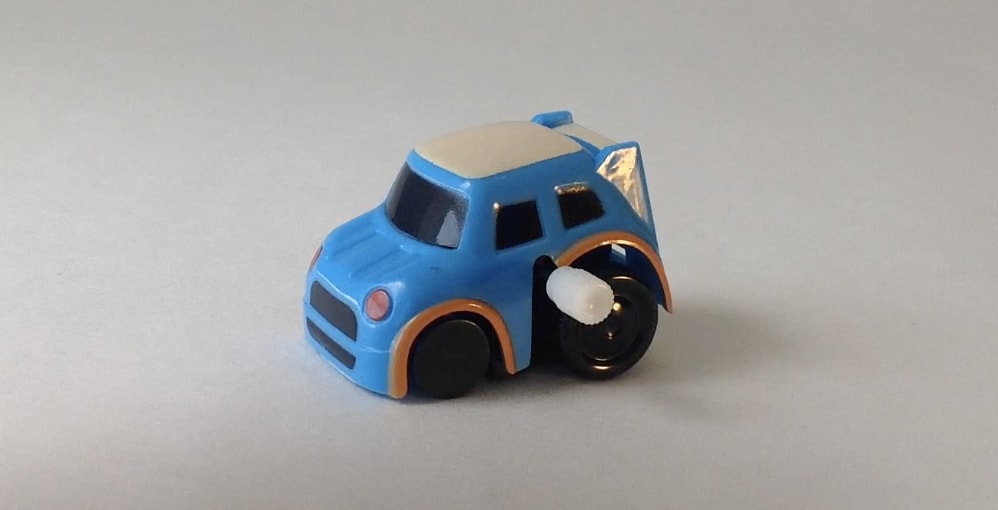

Please wait…
This video is having trouble loading. You may have lost your Internet connection.
Step 1: Click to Reload this page
Step 2: Click to
Try our other video player
Step 3: Contact your teacher if trouble persists.
Or,
dismiss this message.
CONVERSEMOS:
Entre más estires una liga, más fuerte viaja el objeto. ¿Por qué?

Please wait…
This video is having trouble loading. You may have lost your Internet connection.
Step 1: Click to Reload this page
Step 2: Click to
Try our other video player
Step 3: Contact your teacher if trouble persists.
Or,
dismiss this message.

Please wait…
This video is having trouble loading. You may have lost your Internet connection.
Step 1: Click to Reload this page
Step 2: Click to
Try our other video player
Step 3: Contact your teacher if trouble persists.
Or,
dismiss this message.
Paso
01/18
01/18
Encuentra un compañero o compañera con quien trabajar.

Please wait…
This video is having trouble loading. You may have lost your Internet connection.
Step 1: Click to Reload this page
Step 2: Click to
Try our other video player
Step 3: Contact your teacher if trouble persists.
Or,
dismiss this message.
Paso
02/18
02/18
Obtén estos materiales.(Recibirás otros más adelante).

Please wait…
This video is having trouble loading. You may have lost your Internet connection.
Step 1: Click to Reload this page
Step 2: Click to
Try our other video player
Step 3: Contact your teacher if trouble persists.
Or,
dismiss this message.
Paso
03/18
03/18
Dobla el Giromático a la mitad a lo largo de la línea gris oscura.
Dóblalo a la mitad otra vez, sobre la línea delgada, y remarca ese
doblez.
Dóblalo a la mitad otra vez, sobre la línea delgada, y remarca ese
doblez.

Please wait…
This video is having trouble loading. You may have lost your Internet connection.
Step 1: Click to Reload this page
Step 2: Click to
Try our other video player
Step 3: Contact your teacher if trouble persists.
Or,
dismiss this message.
Paso
04/18
04/18
Colorea los atuendos de los pasajeros usando un color para cada
pasajero.
pasajero.

Please wait…
This video is having trouble loading. You may have lost your Internet connection.
Step 1: Click to Reload this page
Step 2: Click to
Try our other video player
Step 3: Contact your teacher if trouble persists.
Or,
dismiss this message.
Paso
05/18
05/18
Corta a lo largo de las dos líneas punteadas. Dobla la solapa hacia
arriba, voltea el papel, y dobla la solapa hacia abajo. Cada vez,
asegúrate de que las imágenes concuerden.
arriba, voltea el papel, y dobla la solapa hacia abajo. Cada vez,
asegúrate de que las imágenes concuerden.

Please wait…
This video is having trouble loading. You may have lost your Internet connection.
Step 1: Click to Reload this page
Step 2: Click to
Try our other video player
Step 3: Contact your teacher if trouble persists.
Or,
dismiss this message.
Paso
06/18
06/18
Obtén estos materiales para crear dos modelos. Decidan quién de
ustedes será el Sujetapapeles y quien será el Medidor.
ustedes será el Sujetapapeles y quien será el Medidor.

Please wait…
This video is having trouble loading. You may have lost your Internet connection.
Step 1: Click to Reload this page
Step 2: Click to
Try our other video player
Step 3: Contact your teacher if trouble persists.
Or,
dismiss this message.
Paso
07/18
07/18
Sujetapapeles: corta la liga delgada así.
Medidor/a: corta la liga gruesa así.
Medidor/a: corta la liga gruesa así.

Please wait…
This video is having trouble loading. You may have lost your Internet connection.
Step 1: Click to Reload this page
Step 2: Click to
Try our other video player
Step 3: Contact your teacher if trouble persists.
Or,
dismiss this message.
Paso
08/18
08/18
Fíjate si las dos ligas son de las misma medida. Sujetapapeles: alinea
las puntas de las ligas, así. Medidor: Si son de diferentes medidas,
corta la más larga para que queden iguales.
las puntas de las ligas, así. Medidor: Si son de diferentes medidas,
corta la más larga para que queden iguales.

Please wait…
This video is having trouble loading. You may have lost your Internet connection.
Step 1: Click to Reload this page
Step 2: Click to
Try our other video player
Step 3: Contact your teacher if trouble persists.
Or,
dismiss this message.
Paso
09/18
09/18
Medidor o medidora: pon la punta de una liga en la línea de en medio.
Luego, Sujetapapeles: cierra el clip sobre la liga para mantenerla en
su lugar. Hazlo con en otro también.
Luego, Sujetapapeles: cierra el clip sobre la liga para mantenerla en
su lugar. Hazlo con en otro también.

Please wait…
This video is having trouble loading. You may have lost your Internet connection.
Step 1: Click to Reload this page
Step 2: Click to
Try our other video player
Step 3: Contact your teacher if trouble persists.
Or,
dismiss this message.
Paso
10/18
10/18
Medidor o medidora: coloca la punta de la liga en el centro de la regla,
así. Sujetapapeles: asegura el clip sobre la liga. Repite estos pasos con
el otro Giromático.
así. Sujetapapeles: asegura el clip sobre la liga. Repite estos pasos con
el otro Giromático.

Please wait…
This video is having trouble loading. You may have lost your Internet connection.
Step 1: Click to Reload this page
Step 2: Click to
Try our other video player
Step 3: Contact your teacher if trouble persists.
Or,
dismiss this message.
Paso
11/18
11/18
Medidor: pon una de las reglas en la orilla de la mesa. Deja más o
menos la mitad de la regla colgando. Sujetapapeles: pon un libro
pesado encima de la regla. Luego repite esto con el otro Giromático.
menos la mitad de la regla colgando. Sujetapapeles: pon un libro
pesado encima de la regla. Luego repite esto con el otro Giromático.

Please wait…
This video is having trouble loading. You may have lost your Internet connection.
Step 1: Click to Reload this page
Step 2: Click to
Try our other video player
Step 3: Contact your teacher if trouble persists.
Or,
dismiss this message.
Paso
12/18
12/18
Giromáticos estén derechos. Si están inclinados, tendrás que ajustar
la liga y el clip.
la liga y el clip.

Please wait…
This video is having trouble loading. You may have lost your Internet connection.
Step 1: Click to Reload this page
Step 2: Click to
Try our other video player
Step 3: Contact your teacher if trouble persists.
Or,
dismiss this message.
Paso
13/18
13/18
1 vuelta: empieza con los pasajeros en frente de ti. Dale vuelta al
Giromático a la derecha, hasta que los veas de nuevo.
1 giro: ver a los pasajeros pasar
Giromático a la derecha, hasta que los veas de nuevo.
1 giro: ver a los pasajeros pasar

Please wait…
This video is having trouble loading. You may have lost your Internet connection.
Step 1: Click to Reload this page
Step 2: Click to
Try our other video player
Step 3: Contact your teacher if trouble persists.
Or,
dismiss this message.
Paso
14/18
14/18
Encuentra la hoja que dice Desafíos para el Giromático.

Please wait…
This video is having trouble loading. You may have lost your Internet connection.
Step 1: Click to Reload this page
Step 2: Click to
Try our other video player
Step 3: Contact your teacher if trouble persists.
Or,
dismiss this message.
Paso
15/18
15/18
Reto #1: el Giromático debe girar exactamente cinco veces por
sí solo. Trabaja con tu compañero o compañera. Contesta las
respuestas para el reto #1 uno en tu hoja de trabajo.
sí solo. Trabaja con tu compañero o compañera. Contesta las
respuestas para el reto #1 uno en tu hoja de trabajo.

Please wait…
This video is having trouble loading. You may have lost your Internet connection.
Step 1: Click to Reload this page
Step 2: Click to
Try our other video player
Step 3: Contact your teacher if trouble persists.
Or,
dismiss this message.
Paso
16/18
16/18
Reto #2: El juego Giromático no puede usar ligas gruesas.
Trabaja con un compañero o compañera y contesta las preguntas
del reto #2.
Trabaja con un compañero o compañera y contesta las preguntas
del reto #2.

Please wait…
This video is having trouble loading. You may have lost your Internet connection.
Step 1: Click to Reload this page
Step 2: Click to
Try our other video player
Step 3: Contact your teacher if trouble persists.
Or,
dismiss this message.
Paso
17/18
17/18
Reto #3: Tercer desafío: ¿cómo harás que funcione tu juego de
verdad? ¿De dónde vendrá la energía almacenada? Dibuja tus ideas.
verdad? ¿De dónde vendrá la energía almacenada? Dibuja tus ideas.

Please wait…
This video is having trouble loading. You may have lost your Internet connection.
Step 1: Click to Reload this page
Step 2: Click to
Try our other video player
Step 3: Contact your teacher if trouble persists.
Or,
dismiss this message.
Paso
18/18
18/18
Platiquen sobre sus ideas para el reto número 3. Luego vean
el último video.
el último video.

Please wait…
This video is having trouble loading. You may have lost your Internet connection.
Step 1: Click to Reload this page
Step 2: Click to
Try our other video player
Step 3: Contact your teacher if trouble persists.
Or,
dismiss this message.
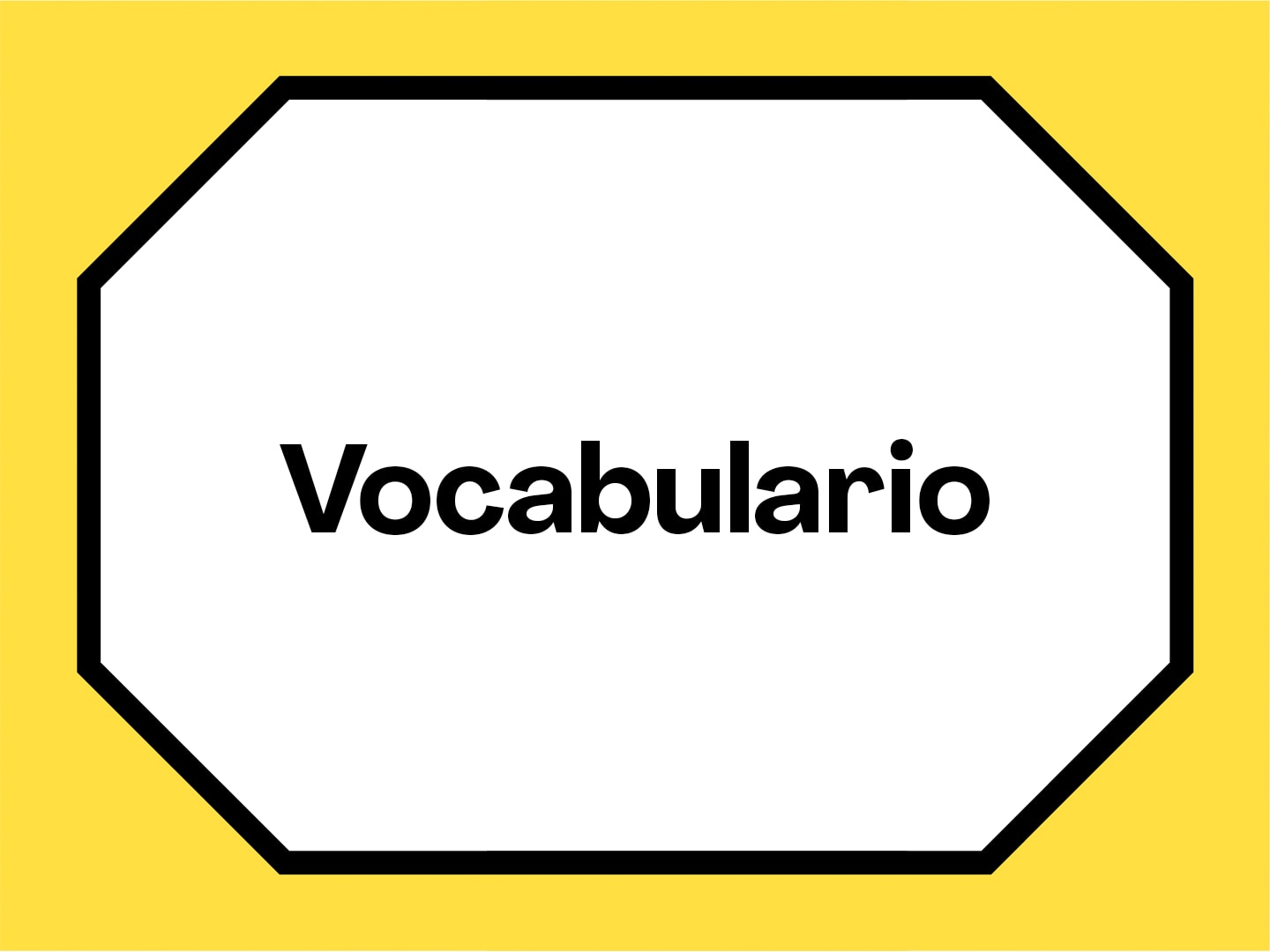

Please wait…
This video is having trouble loading. You may have lost your Internet connection.
Step 1: Click to Reload this page
Step 2: Click to
Try our other video player
Step 3: Contact your teacher if trouble persists.
Or,
dismiss this message.
energía
1 de 6
la habilidad de hacer una acción

Please wait…
This video is having trouble loading. You may have lost your Internet connection.
Step 1: Click to Reload this page
Step 2: Click to
Try our other video player
Step 3: Contact your teacher if trouble persists.
Or,
dismiss this message.
movimiento
2 de 6
cambio en la posición de un objeto

Please wait…
This video is having trouble loading. You may have lost your Internet connection.
Step 1: Click to Reload this page
Step 2: Click to
Try our other video player
Step 3: Contact your teacher if trouble persists.
Or,
dismiss this message.
velocidad
3 de 6
lo rápido que algo se mueve
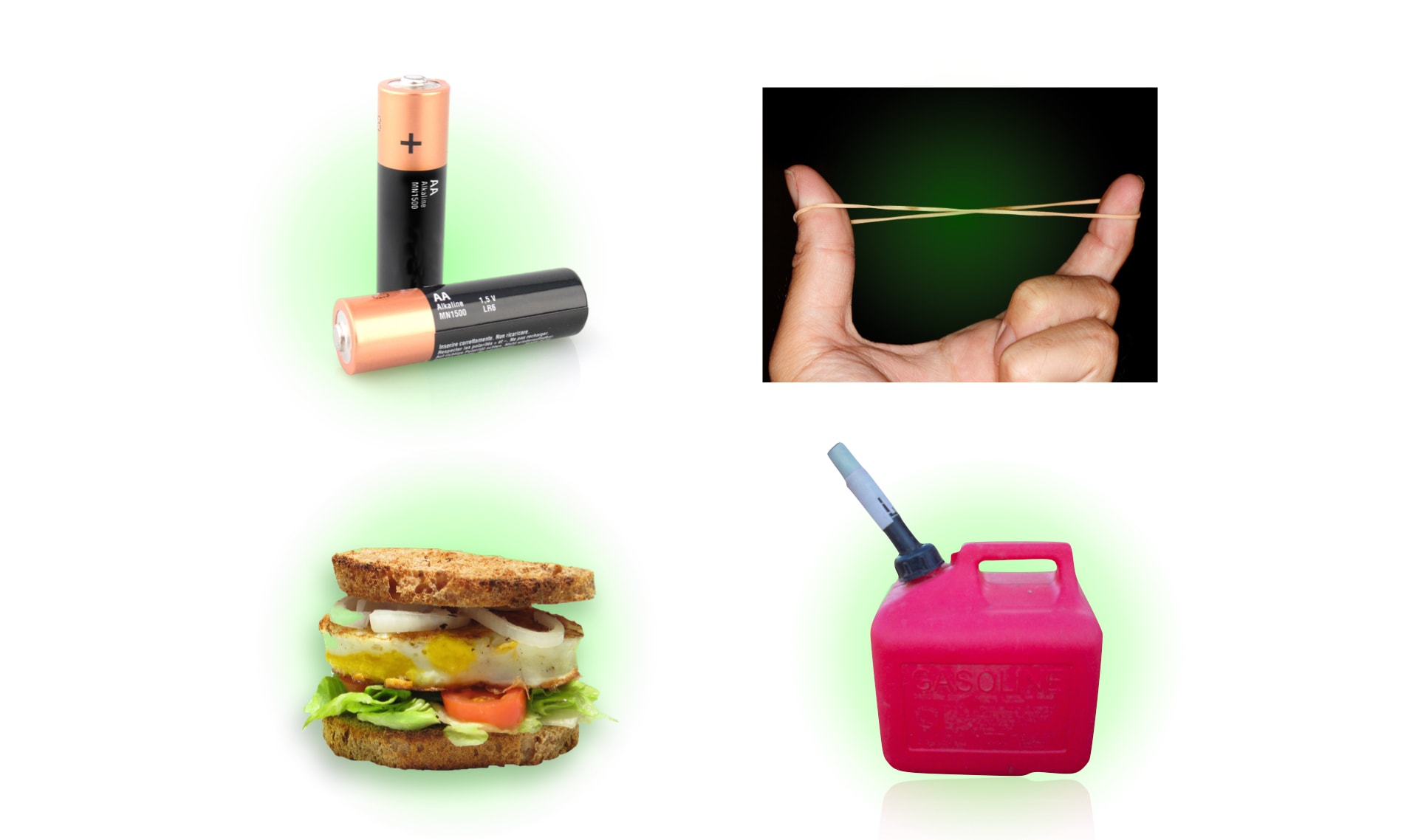
energía almacenada
4 de 6
energía que no está siendo utilizada y que está guardada dentro de algo, por ejemplo, dentro de pilas o en ligas
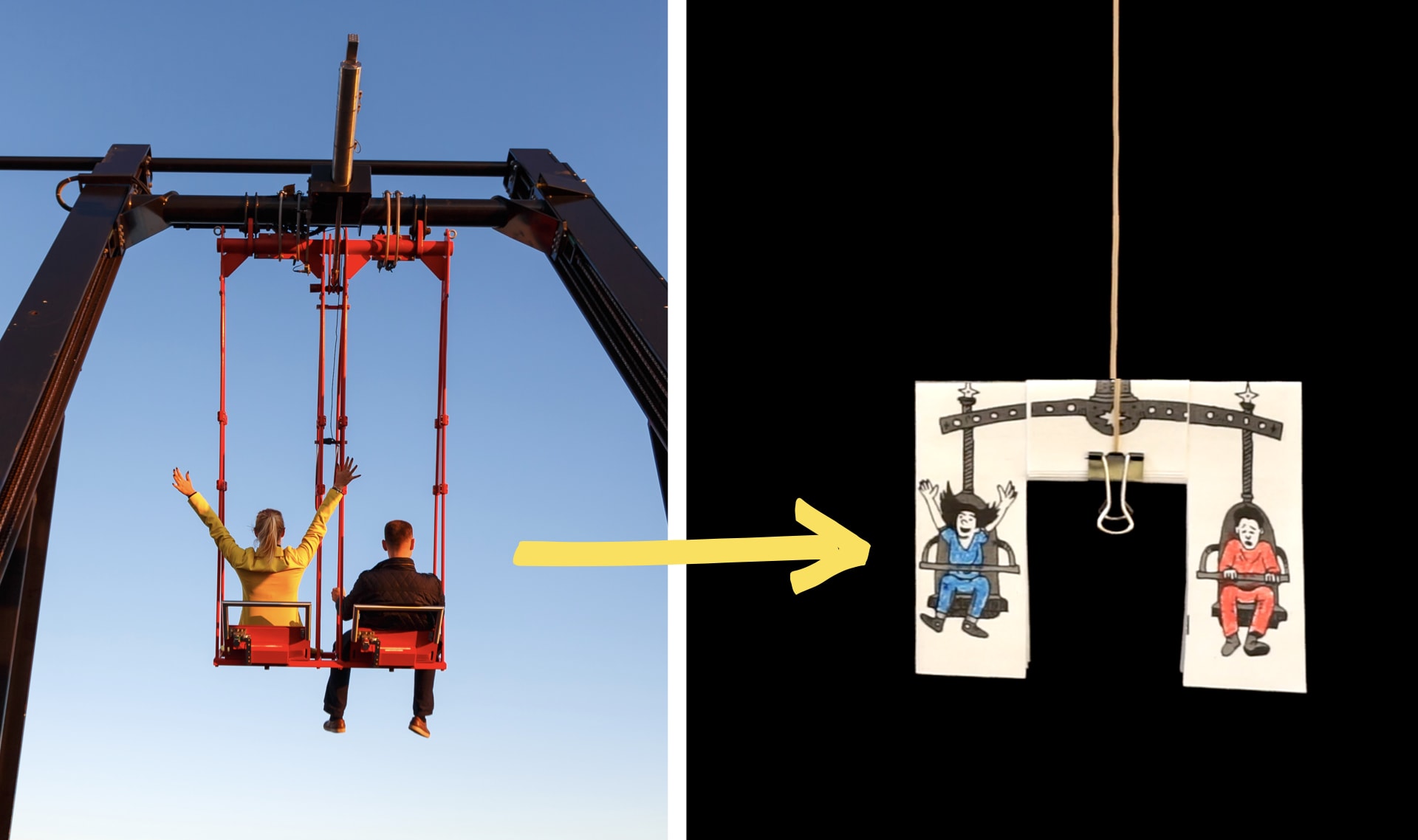
modelo
5 de 6
una versión de mentiras de algo que los científicos usan cuando la cosa de verdad es algo demasiado grande, pequeño, o complicado para poder usarlo en sus estudios
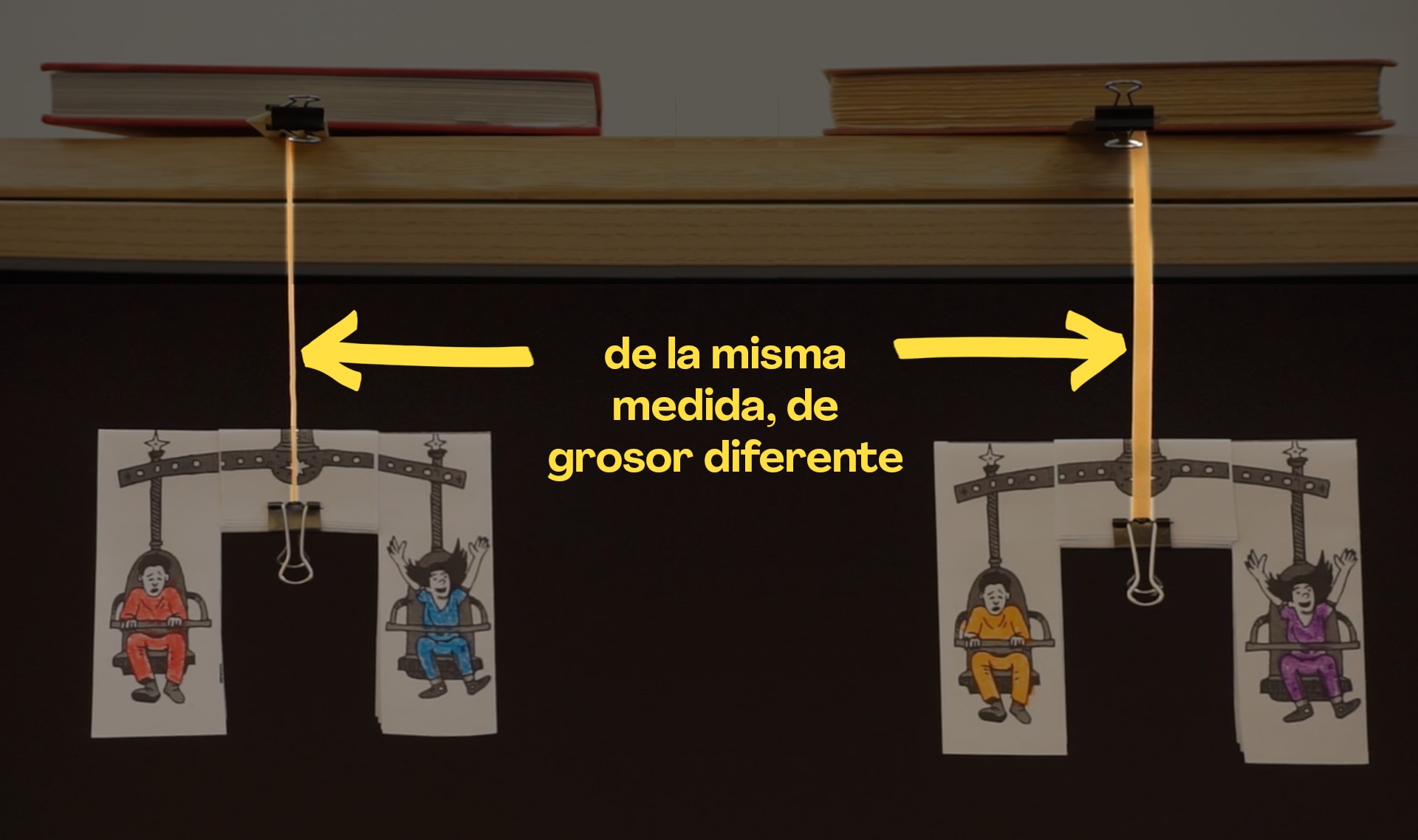
prueba justa
6 de 6
un experimento en el que se cambia solo una cosa y todo lo demás se queda igual



